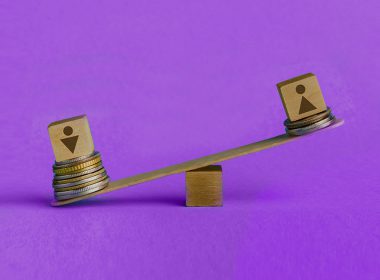At first glance, the work-life of a professional athlete may seem a world away from that of the often desk-bound solicitor. However, experts say lawyers, and law firms seeking peak productivity and performance, stand to benefit from looking closely at how pro-athletes approach their work.
Victorian-based neuroscientist Ashleigh Moreland, founder of personal and professional development consultancy Re-MIND Institute, says it makes sense for lawyers to take lessons from elite sport’s high achievers given areas of overlap between the two endeavours.
These include a need of self-discipline, commitment to excellence, fast decision making under immense pressure, a goal-oriented mindset, constant preparation and refining of skills, as well as constant training and performance.
Moreland also points to mental resilience, the importance of teamwork and collaboration, performance analysis, high stress management, fierce competition, a need for recovery, personal sacrifice and, at times, public scrutiny.
“In my experience working with legal professionals, the biggest lesson is that the ‘gains’ are realised in the recovery period, not by overtraining. There is a tendency to over-work and a high rate of burnout in this industry, which can be career ending,” Moreland tells LSJ.
Moreland’s conclusion finds support from research into what makes so-called “corporate athletes”. The research posits that for white-collar professionals to perform at high levels over the long term, they must train in the systematic, multi-tiered way that athletes do.
A key plank to get there, as per the research, is attaining an “ideal performance state” where energy is mobilised on demand and fuelled by “disciplined, intermittent recovery.”
“Chronic stress without recovery depletes energy reserves, leads to burnout and breakdown, and ultimately undermines performance,” according to the research, published in the online journal Harvard Business Review.
“Rituals that promote oscillation – rhythmic stress and recovery – are the second component of high performance. Repeated regularly, these highly precise, consciously developed routines become automatic over time,” it says.
Business and life coach Fiona Redding agrees, saying becoming a so-called corporate athlete involves “considers the recovery of energy as just as important as expending it”.
“Elite athletes are not expected to perform at their peak eight to ten hours a day, five days a week, 48 weeks a year,” Redding tells LSJ.
“To perform at their best over the long haul and to thrive in a competitive environment, elite athletes don’t just show up to an event and expect to win, day after day.
“There is a huge amount of training, preparation and rest that goes into peak performance, including investing energy in their mental, emotional, physical and spiritual well-being.”
For lawyers looking to tap into the same super-high energy levels as pro-athletes, Redding, the founder of consultancy Happiness Hunter, has some key tips.
A big one: create time for recovery between job tasks, what the literature calls “oscillation.” Other essentials, she says, is a robust physical and fitness routine, good nutrition, healthy eating, high emotional intelligence, and the ability to focus, prioritise and manage time. Such practices can be easier said than done though. Redding says taking a pro-athlete approach to law hits against the use of billable hours, “largely based around the equation that time equals money.”
“The more time spent working, the more that can be billed,” she explains. “The challenge with this approach is that while on the face of it, it appears to be successful, it doesn’t lend itself to using time to manage energy by spending time for a more holistic approach.”
“The system focuses on one aspect of performance only, rather than a holistic approach to performance that benefits every aspect of a person’s wellbeing,” she adds.
In Redding’s view, law firms would be better served by recasting the careers of staff as “performance journeys”, an approach that takes into account how to manage energy. The big benefit of this, she argues, is firms would be priming employees to perform at their best all the time. At the same time, the approach curbs stress, burnout and disengagement.
“It also results in a better working environment that will ultimately improve productivity for the long term both in the current role and in the broader career.”
Recovery is key, but so is everything that happens before gameday, according to neuroscientist Moreland. She highlights that elite athletes spend most of their time preparing – training, honing skills, reviewing performance, and strategising for upcoming comps. That’s because they know gains are often made in downtime between training sessions, not in the training itself.
“Lawyers can adopt this approach by placing a greater emphasis on detailed preparation for trials, negotiations, and client meetings, and ensuring they’re prioritising rest,” she says.
Another important crossover lesson, she says, is mental resilience.
“Athletes are trained to recover quickly from setbacks like losses or injuries. Lawyers, who often face disappointments in case outcomes or client interactions, can benefit from adopting this mindset to be able to be on their game and bounce back even stronger.”
Taking these learnings can have big benefits for law firms, she contends, as they bed in “ a culture of continuous improvement and mental endurance in the legal workplace.”
Elaborating, Moreland says the emphasis on preparation ensures lawyers can handle high-stakes situations with more confidence, just as athletes do in elite competitions.
Familiarity “feels safe to the nervous system, so when we practice, we are enabling peak performance”, she says.
Meanwhile, the focus on mental resilience helps lawyers handle the stress and pressure that comes with complex cases “enabling them to approach each situation calmly and with mental clarity despite the chaos that might be present.”
Geoff Ebert, principal and founder of Your Online Legal Group, has written extensively on the parallels of sport and building a successful law firm. He nominates major principles lawyers can take from athletes as developing a mindset that delivers goals; understanding that the journey is as critical as the result; the importance of communication; and to review outcomes in a consistent and meaningful manner.
“Lawyers have long considered themselves as elite performers in their craft of understanding and explaining the law,” Ebert says.
“Adopting the best practices from elite sport enhances how the legal work is undertaken, creates better harmony between the legal team members resulting in less mental drain and ultimately less physical wear and tear.”
Getting practical, he says when it comes to communication, it’s important for law firms to focus the idea of building effective comms “on the run”.
“Unlike an athlete who may have a break in play or a specific season to receive feedback, in coaching a legal firm or a lawyer you must find ways to communicate on the run,” he says.
“This can include regular team huddles, combined meetings or workshops, internal videos using tools like Loom, providing written materials or reminders preferably in a prominent place, or a combination of these to update and educate staff. Mantras – statements repeated frequently – can help in both arenas, he adds.
“At times of high stress, also having a saying or mantra is a simple method of taking the pressure off. Cathy Freeman would recite to herself ‘do what I know’ when she felt overwhelmed or under pressure to perform”.
Another tip is to visualise, a technique popular with sports like chess. Ebert says in a law firm setting, this concept sees management consider “the components and necessary resources to attract or acquire to execute a specific legal matter or business or career plan”.
“Visualising which chess pieces you would want on the board at the end of the game to checkmate your opponent, then guides your play from the beginning,” he explains.
“Once you have thought about what your winning team or goals would look like, then you can reverse engineer them piece by piece.”
An appreciation mindset is also helpful. Ebert describes this as taking the time to reflect and appreciate all the small things that are working for the law firm team. The approach, which also includes pillars of agency an attitude, has been used by champion Australian tennis player Ash Barty and the Richmond AFL club, he says.
“For example, upon losing an important court case for a client, a lawyer or legal team can choose to view it as a failure or an opportunity to reflect and tweak for matters ahead.
“Even taking the time to appreciate the opportunity given to undertake that court case adopts the growth mindset principles of a winning team and player.”
In Ebert’s opinion, the biggest challenge for lawyers taking lessons from sport is consistency. He says many lawyers attend partner’s retreats or conferences to look at sports-related ideas but once back in the office and things become busy the momentum falls away.
“It takes a genuine effort both individually and collectively to develop effective habits, create the initial conditions for an athlete minded environment and the accountability to maintain it,” he says.
Trial lawyer Andrew Pickett is another legal player keen to take what he can from sports and also picks up on the toughness needed in both fields.
“One crucial lesson is the importance of resilience and mental toughness. Elite athletes understand that setbacks are part of the journey, not an end to it,” he says.
“They view failure as a stepping stone to success. Lawyers too must navigate a landscape filled with challenges and setbacks, learning to bounce back stronger and more determined.
He also echoes Ebert’s keenness for visualisation as a performance booster.
“It’s another tool used by top athletes, where they meticulously envisage their performance to enhance focus and achieve desired outcomes,” the principal of Andrew Pickett Law says.
“By adopting similar strategies, lawyers can prepare for court appearances and client meetings with greater clarity and confidence.”
“Tapping into a higher purpose, whether it’s justice for a client or achieving a significant career milestone, propels both athletes and attorneys beyond ordinary ambitions,” he adds.
He also backs the need for proper recovery. Just as “athletes require downtime to perform at their peak, lawyers need to prioritize recovery to maintain their sharpness and vigour”.
While many sports fans focus on mindset, criminal defence lawyer Lauren Tye points to the physical side of sports, and the positive impact of physical training on overall wellbeing.
She says, as is widely known, incorporating physical training into the workday, if possible, can be a big benefit to general wellbeing and performance in a legal workplace.
“Regular physical exercise helps reduce musculoskeletal issues, which is common amongst lawyers. Engaging in regular physical activity can also boosts mental clarity, reduces stress, and increases energy levels, contributing to better focus and productivity,” Tye tells LSJ.
“Furthermore, exercise promotes better sleep and mood regulation, which can enhance resilience and reduce burnout.”
However she concedes that in the fast-paced world of law, exercise can end up a casualty.
“In business and law, often our biggest challenge is time. It’s easy to preach a healthy body and mind approach but in reality, this is often difficult to manage. It is difficult to find work, life balance when managing heavy and intense workloads.”
Your Online Legal Group’s Ebert reminds lawyers not to overlook the role of a coach. He says every lawyer in a firm, from principal to grad needs both a coach and a mentor.
“The coach provides direct feedback on areas of concern, assists where knowledge is lacking and needs to be acquired or provides positive praise to uplift the soul,” he says.
“This is different to a mentor who provides two-way communication and support to help more with the emotional resilience rather than intellectual growth of the lawyer.”




